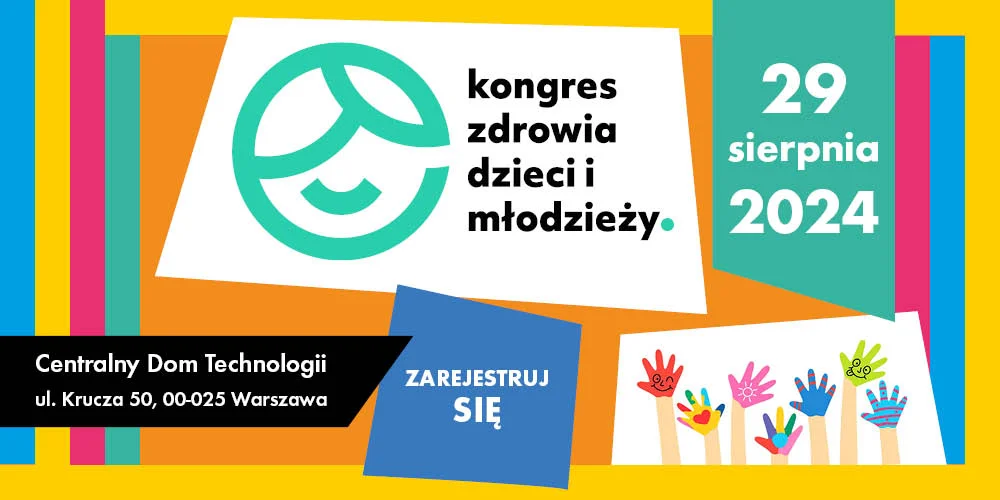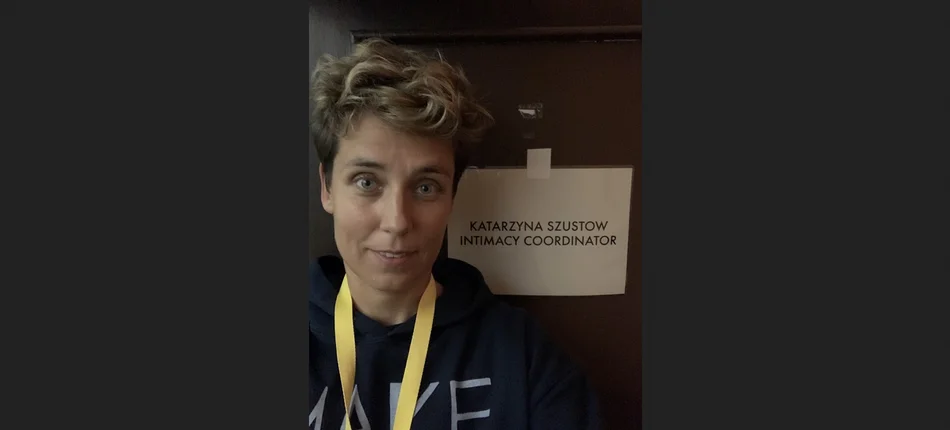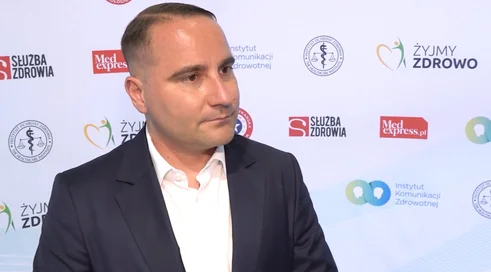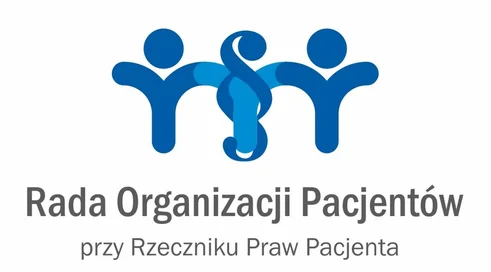Medexpress: Working as an intimacy coordinator in the film and theater industry is a whole new profession-a sign of changing times and of recognizing the importance of consciously built relationships between people. And intimacy, you say, is for you a combination of security and trust. Tell us what your work consists of.
Katherine Szustow: The trust between actors that you see in a scene is already the end result. It's that icing on the cake that has to be built together beforehand. The first stage of work begins with reading the script. Everyone needs to understand what world we are entering and what we are going to tell the story about. The second stage is to confer with the director, the filmmaker and understand their vision, so that we know what kind of passion, intimacy (or lack thereof) is to appear in the film and what we want to tell the audience with it. The next point of work is to talk to the actors and very often there is a theme of boundaries and assertiveness, that "no" is a full sentence. We talk to them about what is the role of coordinators of intimate scenes on the set, what we help them with and what can be expected of them, and what not necessarily. Intimate scene coordination consists of the principles of the five C's, and I also add a sixth.
Medexpress: What's underneath them?
Catherine Szustow: It's: consent, which means "informed consent" or "acquiescence." It's important for actors to know that no one will manipulate them, they'll get full information about what we're doing and why we're doing it, how we're building the character, and that they always have the right to withdraw, even at the last moment when everything is worked out. I have had this situation twice. It's usually related to their personal experience, and you have to be aware that working with actors who have experienced previous traumas looks different, among other things because the body's memory is non-rational. Another "C" is context, or "context" the actor knows why and why he has to undress in a scene, why he has to perform such and not other things on his own body. We talk about the character, the scene - not about their personal lives, unless they are talking about their experiences, which were difficult for them and can influence our work. The next "C" is communication. Communication should be transparent, based on non-violent agreement. There is also a "C" like choreography, meaning each scene has its movement and gesture directed. And closure means closing the character, closing the creative process. The coordinators suggest exercises to help you get out of the role - for me this is important so that the actors are not left alone with the "grieving process" after the film is finished. And to these principles I add another "C", which is community because I believe that working on a film or a play in the theater is teamwork. That's one part, the other is working on the script, practicing with the actors, for example when we work on body sense. You can tell the actors to trust each other, but that won't work, it takes work. Then we go onto the set, and that's where you need to coordinate arrangements from all verticals.
Medexpress: That last "C," that is, character closure-how is your work in this aspect?
Katherine Szustow: Closing a character is a very intimate moment for an actor. I give them exercises to do on their own at home. But some actors have their own techniques. In addition, after about two weeks I send them the so-called "feedback form", in which they share their thoughts, comments from working on set with me. Feedback in creative processes is a novelty. Until recently, no one had the right to evaluate anyone. I think this "test" of my competence, as well as a test for the whole production, is incredibly developing. Actors have the opportunity to share their thoughts on the whole process. We hav...
Content locked
To gain access to the complete English section of the Medexpress.pl, kindly reach out to us at [email protected].




















